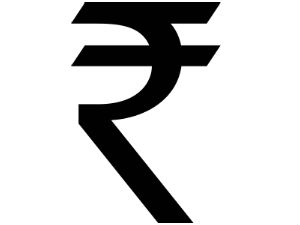Credit ratings of companies unlikely to be impacted: Fitch


| 83.672 |  | United States Dollar |
Another 28 issuers may expect negative rating actions, such as an Outlook change or a rating downgrade, in the event of a sustained depreciation of rupee.
However, Fitch does not expect any of these issuers to default. The agency also cautions that the impact on non-investment grade corporates could be severe, given their limited financial flexibility.
Fitch analysed the impact of rupee depreciation on the credit profile of 302 corporates rated at investment grades as per Fitch's National rating scale.
The study focuses on 14 sectors which would be most impacted (either positively or negatively) by the rupee depreciation. The sectors were divided into four groups namely a) net exporters (pharmaceuticals, technology, mining and textiles, gems & jewellery), b) net importers with ways to mitigate depreciation (auto ancillary, oil & gas, metals - ferrous & non-ferrous), c) net importers without ways to mitigate depreciation (chemicals, fertilisers, paper and cement), and d) business model driven exposure (diversified manufacturing). Under these sectors, a detailed analysis is provided for the likely to be worst hit 114 companies, of which 57 are listed.
The rating company expects export-oriented companies to derive lesser benefits from rupee depreciation than historically observed. The lower impact is attributed to weak demand in the global economy, aggressive price renegotiations, hedging of foreign currency exposures and the negative impact of foreign currency debt servicing. These factors will cap the benefit to the credit profiles of companies in the pharmaceutical, technology, textile, and mining sectors.
The impact will be marginal for companies with the ability to pass on cost increases, such as auto ancillary sector, or where prices are driven by import parity practices, such as oil and gas or metals industry. However, a slowdown in end-user demand may force companies in auto and related sector to absorb some of the price increases.
In case of sectors importing a significant portion of their raw materials like chemical, fertiliser or paper industries, Fitch believes that current low demand will constrain the ability to pass on the higher costs. The credit profile for these sectors will be relatively most affected by rupee depreciation.
Of the 302 corporates, 121 issuers (35% of overall debt) have no direct operational exposure to foreign currency. However, the potential benefit of lower global commodity prices would not be able to help the margins of sectors such as real estate, metal processors, chemical processors and print media due to rupee depreciation.
Sub-investment grade companies in the chemical, metal processing and trading (in processed and unprocessed imported commodities) industries are likely to face lower margins, higher inventory levels and stretched working capital. They may be the worst casualties of rupee depreciation.
Fitch does not expect the rupee to appreciate in the short term until global risk aversion subsides. On the contrary, the currency may depreciate further if global risk aversion worsens or the domestic fiscal position deteriorates.
GoodReturns.in































